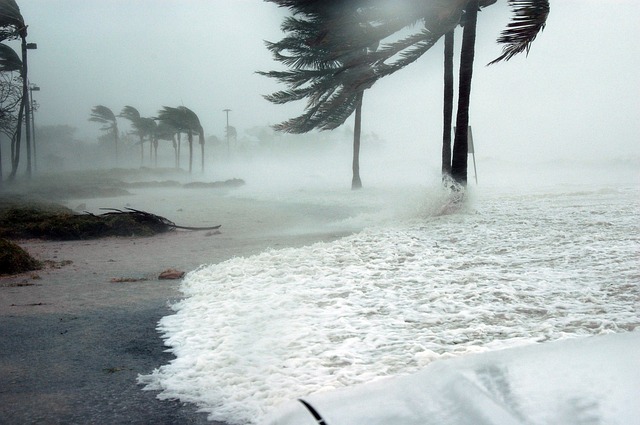How To Insure Your Home For Hurricane Season

Download this episode:
On iTunes | On Stitcher
Many homeowners learn the hard way that their homeowners insurance doesn’t cover property damage caused by hurricanes and floods. Hurricane season is upon us, making now the perfect time to review your insurance policies and see what’s covered if a big storm hits.
The risk and cost of hurricanes
National Geographic reports that the 2017 hurricane season was the most expensive in U.S. history, causing an unprecedented $200 billion in damage. This is a significant increase from previous years; according to the ISO, hurricanes and tropical storms caused $161.2 billion in insured losses in 2014 dollars in the United States from 1995 to 2014.
Each year, the most common and extensive form of storm damage that occurs in the U.S. is flooding. This is even true during tropical storms and hurricanes; while the high winds are often destructive, it is flooding that causes much of the damage.
While current reports predict that the 2018 hurricane season will be less active than average, it is still important to be aware of the damage they can cause and how to insure against it.
How to insure against hurricanes
If you live in a hurricane-susceptible state, you are surely familiar with the destruction they can cause. Did you also know that the wind damage and flood damage from a hurricane are covered differently by insurers?
Homeowners insurance generally covers some damage from hurricane winds, albeit with a deductible that is different from your average property insurance deductible. According to the Insurance Information Institute, this deductible typically ranges from one to five percent.
However, homeowners and renters insurance do not cover flood damage, including water from a storm.
Flood insurance
If you’re a homeowner living in a storm zone and carry a mortgage from a federally regulated or insured lender, it is important to know that flood insurance is required by federal law.
Flood insurance purchased through an insurance agent or company participating in the National Flood Insurance Program (NFIP) is the only guaranteed flood insurance coverage available.
As of 2016, approximately 90 private insurance companies nationally offer flood insurance backed by the federal government. Coverage through the NFIP costs an average of nearly $700 per year, but premiums vary depending on your property’s flood risk. The amount of contents and building coverage you purchase will also impact the cost.
Windstorm insurance
As previously mentioned, in most states, your standard homeowners insurance policy will cover damage caused by wind. However, if you live in a high-risk coastal state, you might need to buy separate windstorm insurance.
Windstorm insurance covers damage from any high wind, including hurricanes. Coverage may be available as a rider on your current policy or through a state-run insurance pool.
In 19 coastal states (and the District of Columbia), damage caused by hurricanes or named storms is subject to a separate deductible. Hurricane deductibles are usually set as a percentage of the home’s insured value and often range from one to five percent.
Other tips for protecting your home
- Take inventory of your possessions so you’ll have an accurate record to rely on when making a claim. Check out Know Your Worth to find out how.
- Look into replacement-cost home insurance; it can help ensure you have enough coverage to rebuild your home if it’s destroyed.
- Loss-of-use home insurance reimburses you for living expenses if you’re uprooted from your home following a disaster.
- Consider making safety improvements to your home. Insurers may offer discounts for improvements like hurricane shutters.
- Do not wait until right before a storm to get insured; many companies stop offering policies once a storm is named. Consider purchasing a policy for hurricane season is in full swing, whenever possible.



